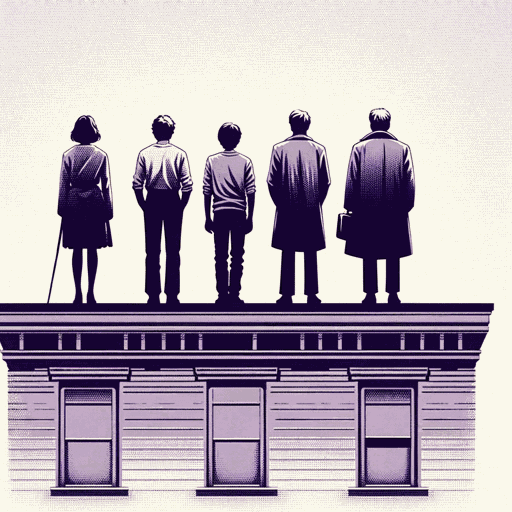76 pages • 2 hours read
Nick HornbyAbout a Boy
Fiction | Novel | Adult | Published in 1998A modern alternative to SparkNotes and CliffsNotes, SuperSummary offers high-quality Study Guides with detailed chapter summaries and analysis of major themes, characters, and more. For select classroom titles, we also provide Teaching Guides with discussion and quiz questions to prompt student engagement.
Important Quotes
"People often thought Marcus was being funny when he wasn't. He couldn't understand it."
(Chapter 1, Page 1)
Literal-minded Marcus struggles to communicate with those around him, and his earnest enquiries are dismissed as jokes. This trait makes him a misfit and isolates him.
"It was bad enough that they had children in the first place; why did they wish to compound the original error by encouraging their friends to do the same? For some years now Will had been convinced that it was possible to get through life without having to make yourself as unhappy in the way that John and Christine were making themselves unhappy."
(Chapter 2, Page 8)
Thirty-six-year-old Will, who is also a misfit amongst his peers, refuses to accept that he should fall into the acceptable pattern of having a committed relationship and a family. He equates responsibility with unhappiness, a belief that changes over the course of the novel.
"What was there to laugh at? Not much, really, unless you were the kind of person who was on permanent lookout for something to laugh at. Unfortunately, that was exactly the kind of person most kids were in his experience. They patrolled up and down school corridors like sharks, except what they were on the lookout for wasn't flesh but the wrong trousers, or the wrong haircut, or the wrong shoes, any or all of which sent them wild with excitement."
(Chapter 3, Page 13)
Marcus judges that the fault lies with those who laugh at him, rather than with himself. It is his peers' propensity to look out for differences, and not the differences themselves, that is the problem. At this stage in the novel, Marcus adopts Fiona's belief that people who judge on appearances are superficial.
Related Titles
By Nick Hornby






